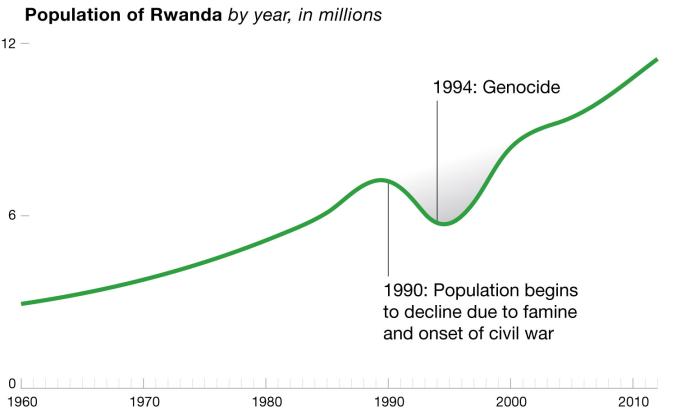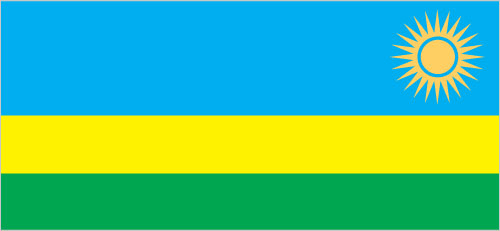"Because these hands destroyed the country, we have to use them to rebuild it."
Sekama Musa
Sekama Musa
|
|
Rwanda continues to experience long term effects of the genocide. Tutsis who were children in 1994 now live among people who may killed their family. Hutu killers must wrestle with the guilt of being involved in the genocide. However, a ray of hope exists: After being elected president, Kagame passed a law making the words “Tutsi” and “Hutu” illegal in an effort to move the country toward a new unification as one group: Rwandans. This greatly contributed to decreasing prejudice and division.
|
"People were deeply traumatised - both the victims and the perpetrators. Individuals were deeply hurt, but also relationships between people, and the social network of whole communities was destroyed, in a country where people are very interdependent on one another for their daily survival."
Cori Wielenga |
|
|
|
"Three horizontal bands of sky blue, yellow, and green, with a golden sun with 24 rays near the fly end of the blue band; blue represents happiness and peace, yellow economic development and mineral wealth, green hope of prosperity and natural resources; the sun symbolizes unity, as well as enlightenment and transparency from ignorance." The World Factbook |
|
|

